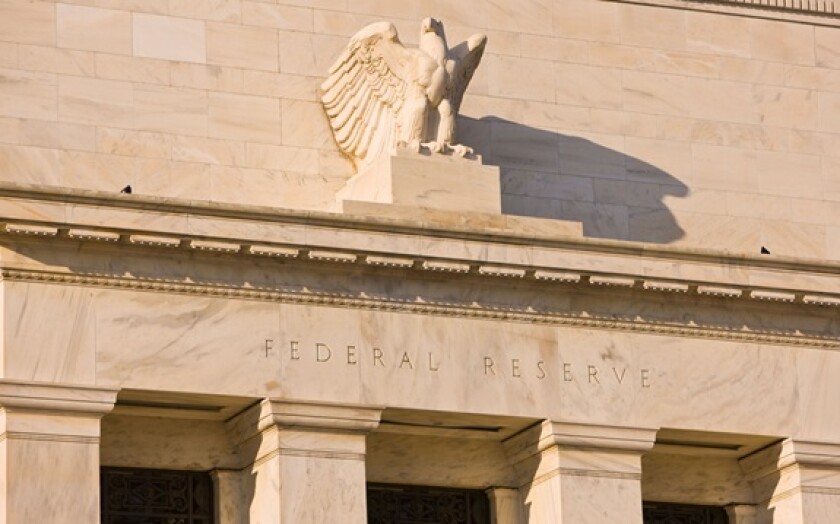If you owe the bank $100, it’s your problem. If you owe it $100m, it’s the bank’s problem — or so the saying goes. The same could be said for bank regulation.
The Bureau of Investigative Journalism and International Consortium of Investigative Journalists revealed in January that the Federal Reserve was allowing major Wall Street banks to break rules designed to prevent another financial crisis.
The story came after a whistleblower reported to JP Morgan board members that the bank had been misreporting its trading assets.
If it was just one bank doing this, it might simply be the bank’s problem. But another banker told The Bureau of Investigative Journalism that other big US banks were doing the same thing — and that the Fed was tacitly allowing it. That makes it the Fed’s problem.
JP Morgan, for its part, told TBIJ and ICIJ that it fully complies with all capital regulations and is confident in its methodology, which “is fully transparent to our regulators”.
Meanwhile, the Fed declined to clarify its position on this rule — a lack of transparency that in itself raised concerns.
In this case, the Fed’s apparent willingness to turn a blind eye affects the biggest banks in the US. There are more than 4,000 others across the country.
Jeremy Kress, associate professor of business law at the University of Michigan, argues that by reacting in this way, the Fed is contributing to the unlevel playing field that disadvantages smaller banks.
Push for deregulation
These revelations come at a critical moment. Regulators around the world are developing new rules based on the international Basel Accord to increase the amount of capital banks hold in reserve.
Last year, however, the Federal Reserve halved the proposed increases to capital requirements in its jurisdiction.
Under US president Donald Trump, the regulator is expected to become even more accommodating to the industry. Banks see this as a unique opportunity to reshape capital rules.
Kress at the University of Michigan said the Fed’s apparent tendency to accommodate the big banks is in part because it is swayed by the argument that stricter rules will put them at a competitive disadvantage to their global rivals.
He believes the contrary is true.
While the Basel Accord is not binding, if a country’s financial regulator does not implement the minimum standards, other countries can penalise its banks. In other words, there is an incentive for US banks to comply with Basel, or risk other countries making it more difficult for them to operate overseas.
Fair for all
This is not just a US problem. Regulators agree to minimum standards for banking rules at an international level because finance is a global business. That has been a basic tenet of bank regulation for decades.
As finance became more globalised in the 1970s, there was a concern that national regulators would water down their rules to attract more business. That kind of race to the bottom would be bad for global financial stability.
However, no national regulator would want to create rules that disadvantage its biggest banks. So, the Basel Committee was formed to come up with minimum standards that would ensure financial stability.
Then came the global financial crisis of 2008, and with it, a stark demonstration that those standards were not strict enough. So, the Basel Committee set about changing them to demand that the bigger, more complex banks hold more capital to protect against losses in times of crisis.
Under these rules, banks must report information related to their complexity to the regulators, which then determine how much capital they should hold against potential losses.
The Basel Committee stated that, as part of this process, banks must report their trading assets without doing what’s known as netting — offsetting long and short positions in shares and other products.
Banks would argue that the short positions act as protection against their long positions, so both should be considered. But the last financial crash demonstrated that this protection does not always work.
Risks ahead
As Graham Steele, former assistant secretary for financial institutions in the US Treasury, put it: “It’s a nice accounting fiction that operates well in good times, but doesn’t actually function as cleanly when there’s broader stress and potential instability.”
Netting makes a bank look like it is less exposed to risk and it will therefore be required to hold less capital. This, in theory, allows it to deploy that capital elsewhere to make more money.
A well-placed source says the European Banking Authority found out some of its banks were netting when reporting their trading assets a few years ago. A recent update of the reporting instructions made it clear that this was not allowed.
The Federal Reserve, on the other hand, appears to be turning a blind eye to US banks taking the same approach. That is not good for the US’s standing as a supposed leader on financial reform.
More importantly, it opens the door to other countries looking to soften the rules to favour big banks. “Instead of pushing for higher standards it’s leading to a dynamic of all the participants in the international groups pushing for further weakening of these standards,” argues Steele.
That is everyone’s problem.
Josephine Moulds is a reporter for The Bureau of Investigative Journalism.

